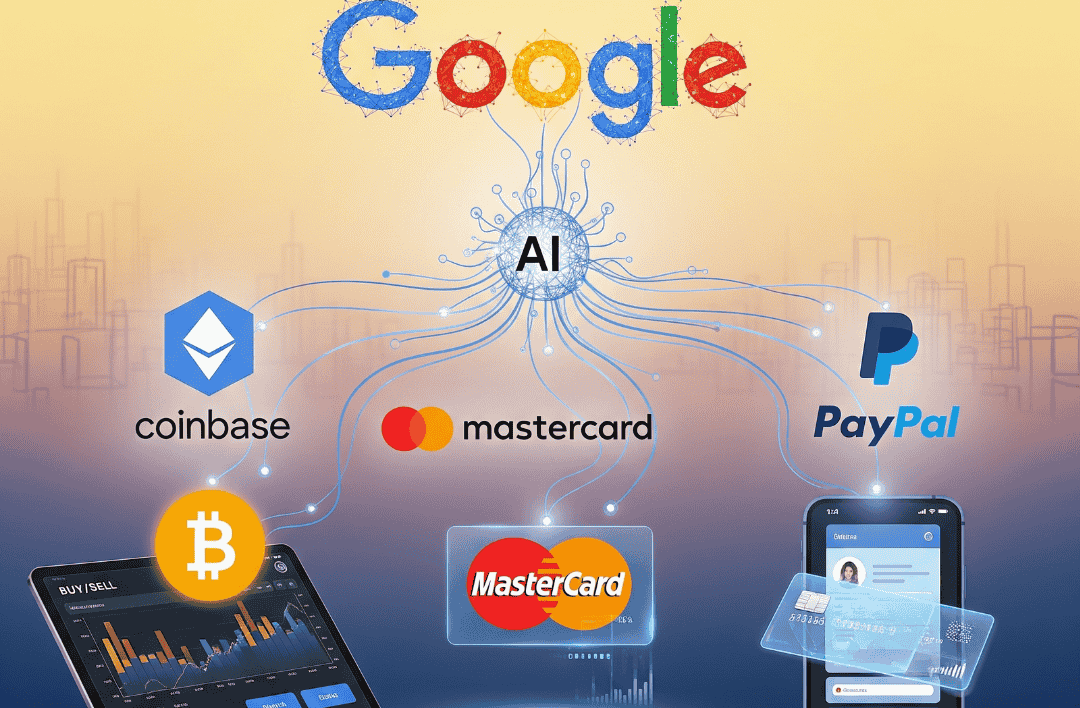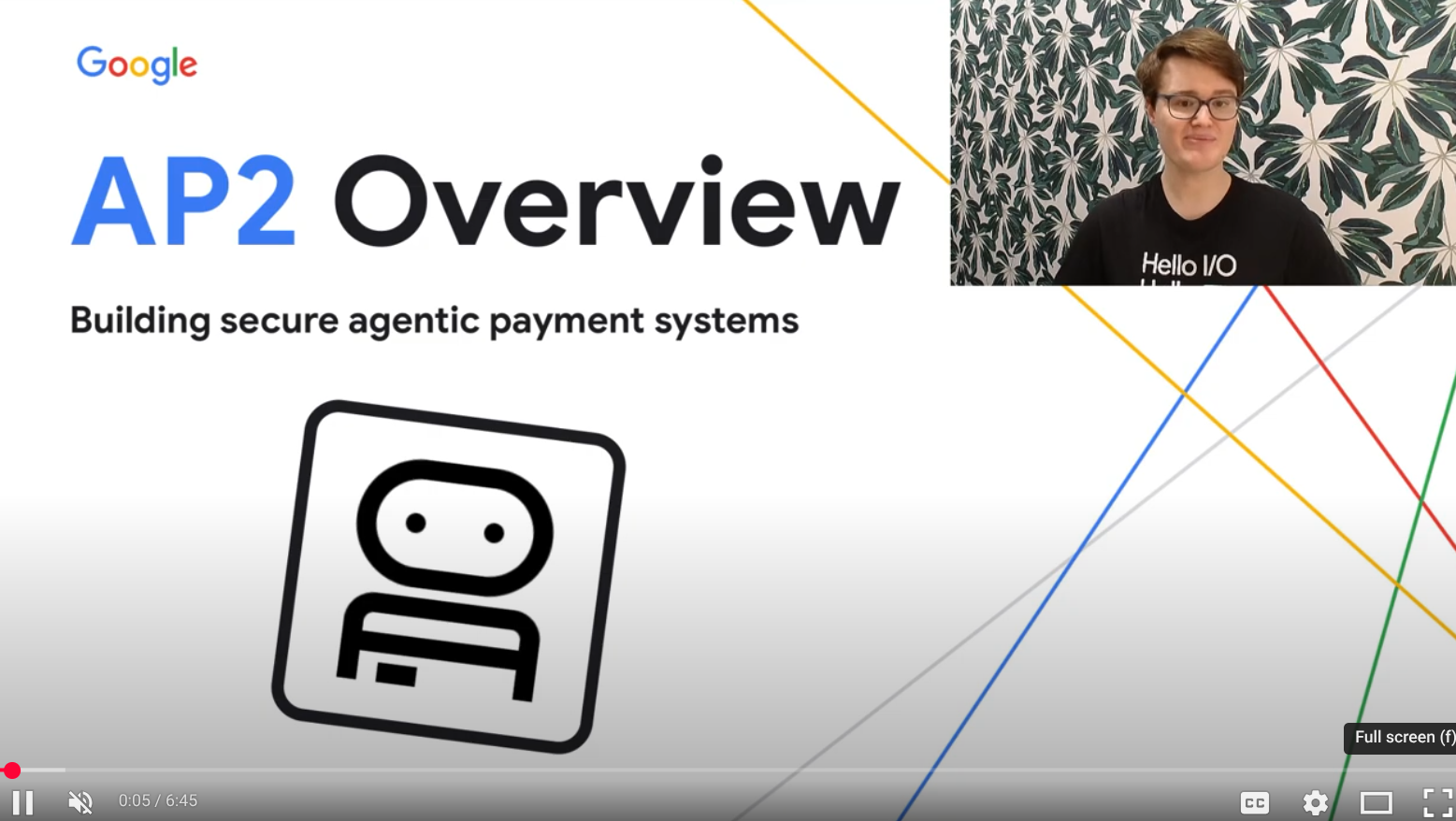Google has recently introduced the Agent Payments Protocol (AP2), an open-source system designed to enable artificial intelligence (AI) agents to make payments and carry out transactions on behalf of users securely and with clear authorization. This development marks a significant step forward in how AI can participate in commerce, with over 60 major companies including Mastercard, PayPal, American Express, Coinbase, and others collaborating on this technology to create a unified, trustworthy framework for automated payments.

AP2 is built as an extension to existing protocols like Google's Agent2Agent (A2A) and the Model Context Protocol (MCP). It provides a standardized way for AI agents—digital assistants capable of autonomous decision-making and action—to handle payments. The protocol focuses on three critical issues in agent-driven commerce: authorization, authenticity, and accountability.
-
Authorization: AP2 collects user "mandates," which are tamper-proof, cryptographically-signed digital contracts. These mandates prove that a user has allowed the AI agent to perform a specific transaction, detailing what items or services are approved and what spending limits apply.
-
Authenticity: Merchants can trust that the AI agent’s purchase request genuinely reflects the user's intent.
-
Accountability: In the event of fraud or errors, AP2 provides a clear audit trail to determine responsibility, safeguarding both users and merchants.
By addressing these elements, the protocol aims to open up AI-driven commerce in a way that prevents fragmented systems and builds trust between users, merchants, and payment providers.
The rise of "agentic AI" means that more and more, AI will act autonomously to perform tasks for users—including shopping, booking services, and other financial transactions—without direct human input at each step. AP2 ensures that these automated transactions are done with explicit permission and under clear rules. For example, an AI agent could be authorized to buy a restocked product at a price previously agreed upon or to seek personalized offers from merchants. This flexibility could save users time and enhance convenience significantly.

For businesses, AP2 offers a way to support this new mode of commerce without confusion or security risks. Merchants can verify that transactions were approved, reducing fraud risks and chargebacks. Payment companies benefit from a unified, cross-platform protocol that helps them adapt to the emerging AI commerce ecosystem while maintaining compliance and security standards.
Until now, payment systems have mostly assumed a human directly makes online purchases, clicking a "buy" button. However, as AI agents become more capable, this assumption breaks down. AI buying on behalf of users without proper frameworks could lead to security issues, confusion over user intent, and disputes over transaction responsibility. Google’s AP2 aims to solve these challenges by creating a common language and framework for AI-powered transactions that all industry players can adopt.
This initiative comes at a time when AI-driven commerce is accelerating, supported by advances in AI communication standards and growing integration with enterprise and payment systems. By enabling secure, transparent, and accountable AI commerce, AP2 could pave the way for a new era in digital transactions where users confidently rely on their AI agents for everyday purchases, and merchants can trust these interactions.

Google's AP2 can be seen as a foundational layer for the future where digital agents handle more financial tasks independently. This could transform many aspects of shopping and financial services by automating routine decisions, price monitoring, and even negotiation based on user preferences set in "mandates." However, this also raises questions about user control, privacy, and oversight. While Google’s protocol emphasizes security and accountability, users and regulators will need to watch closely how such autonomous systems evolve and ensure they align with ethical and legal standards.
The involvement of a broad coalition of payment firms signals industry readiness, but the actual impact will depend on widespread adoption and how well users adapt to this new mode of interaction. The protocol’s open nature encourages innovation while providing a consistent security framework—a balance that could help ease concerns around AI’s expanding role in commerce.

Google's introduction of the Agent Payments Protocol represents a major step in formalizing AI-driven transactions, making it safer and more transparent for users and businesses alike. By addressing core issues of authorization, authenticity, and accountability, AP2 aims to unlock the potential of agentic AI in commerce while safeguarding trust and security. As autonomous AI agents become more common in everyday transactions, this protocol could play a crucial role in shaping the future of digital payments and commerce.
With inputs from agencies
Image Source: Multiple agencies
© Copyright 2025. All Rights Reserved. Powered by Vygr Media.























